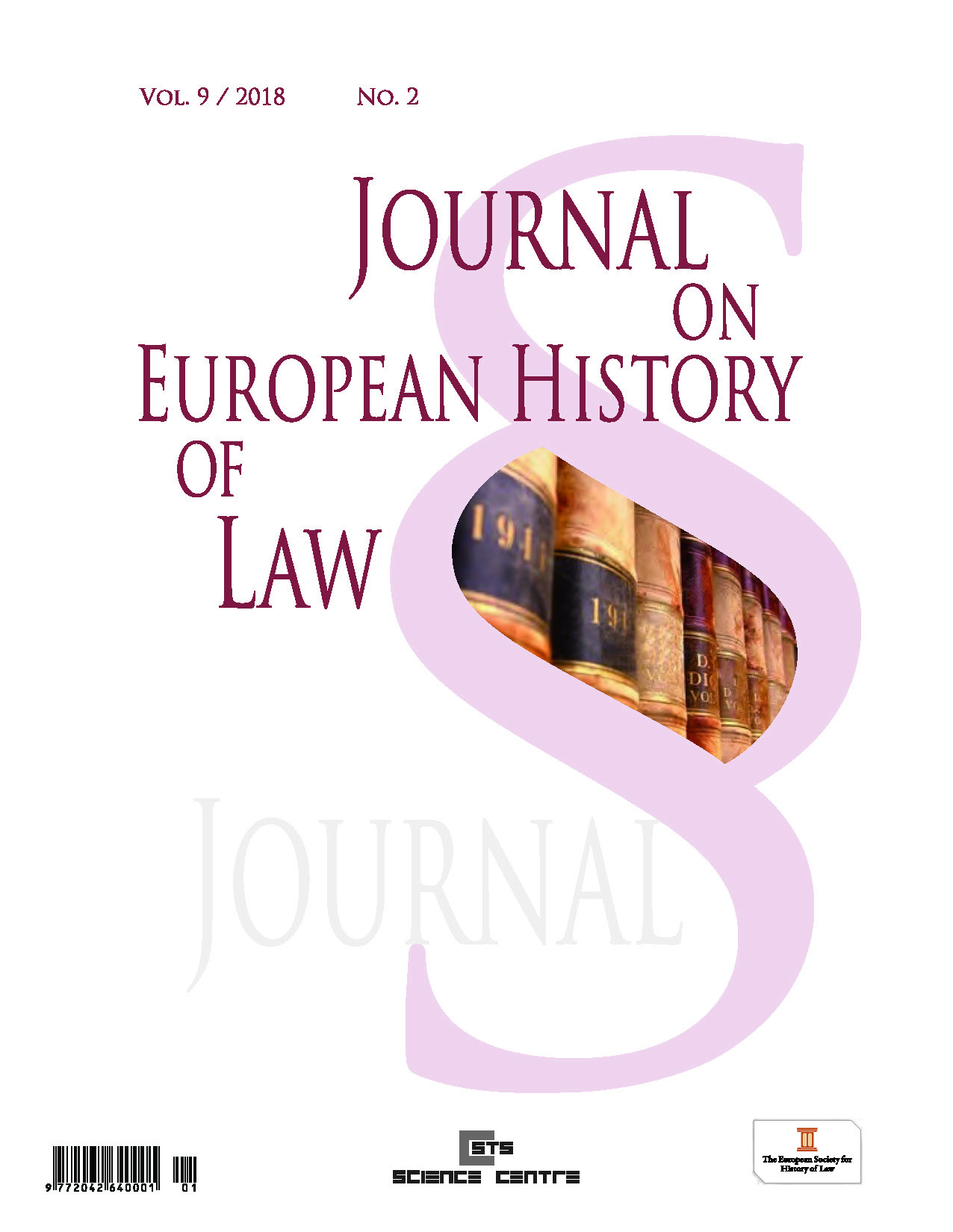Legal Practice concerning Counterfeiting as a Crime in Hungary in the Age of Neoabsolutism (1849 – 1861)
Legal Practice concerning Counterfeiting as a Crime in Hungary in the Age of Neoabsolutism (1849 – 1861)
Author(s): Zsanett SzabóSubject(s): History, Law, Constitution, Jurisprudence, Criminal Law, Criminology, 19th Century
Published by: STS Science Centre Ltd
Keywords: counterfeiting; Austrian Criminal Code; neoabsolutism; Hungary;
Summary/Abstract: In this study, I present the history of the regulation of counterfeiting in Hungary, and I present it’s practice in the period of neoabsolutism (1849-1861). At the beginning of this study, I write about how was counterfeiting regulated and what circumstances were taken under consideration in the regulations, from the Roman law to the first codified criminal code of Hungary. In the knowledge of these rules, I present the practice of counterfeiting as a crime. Frigyes Kahler already examined the legal practice of Debrecen only until 1848 so describing these results, I present the specificities of the established practice of that time. The practice of the years of neoabsolutism - when the Austrian Criminal Code was applicable - I present it based on primary sources, because I found a lot of crimes when I conducted research in the archives of Hajdú-Bihar County. During processing the relevant cases, my objective was to detect any possible differences or, first of all, to highlight the fact how the Austrian Criminal Code was applied in the legal practice or even to which extent the legal practice applied common law established before.
Journal: Journal on European History of Law
- Issue Year: 9/2018
- Issue No: 2
- Page Range: 148-155
- Page Count: 8
- Language: English
- Content File-PDF

